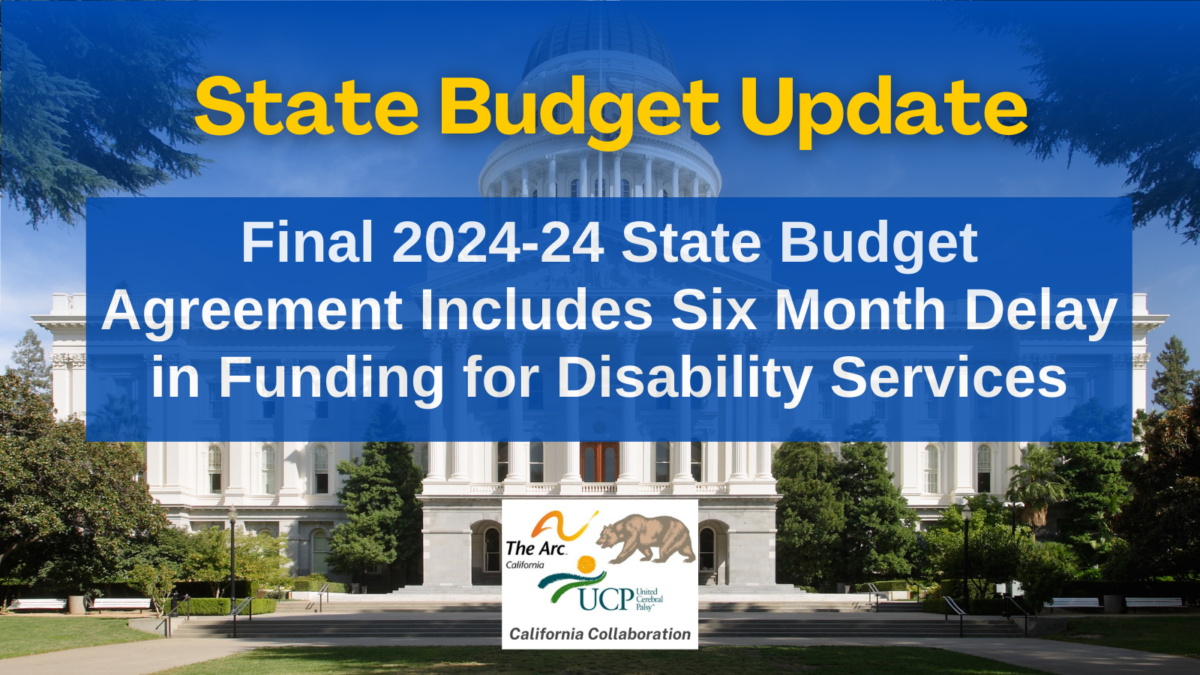By Jordan Lindsey, Executive Director, The Arc & UCP California Collaboration
This year’s state budget was finalized within the context of a $46.8 billion deficit. Since Governor Gavin Newsom released his initial proposed budget in January – which included a 12-month delay in $1 billion of new funding for regional center services – the legislature has held dozens of budget committee hearings to develop a plan that addresses the deficit.
Thousands of advocates from across the state took action in response to the Governor’s proposed $1 billion delay in funding for services supporting people with developmental disabilities and their families. Nearly 20,000 Californians spoke out against delaying the full implementation of the regional center rate models, and sent more than 120,000 emails, tweets, and petition messages to Governor Newsom and legislators to invest the full amount on July 1, 2024, as promised in previous budgets. As a result of this effort, the final budget agreement successfully pushed back against the Governor’s proposal of a 12-month delay and instead shortened it to a six-month delay. This six-month delay, however, will continue to exasperate the monumental staffing shortage and strain a system of supports and services that is already unable to provide adequate access to essential services, leaving thousands across the state without support.
The Arc of California’s detailed summary of California’s enacted 2023-24 budget and its impact on people with intellectual and developmental disabilities (IDD) and their families is below:
Regional Center Services: A six-month delay in rate increases for developmental services, in lieu of the one-year delay proposed in the May Revision. The remaining 50% implementation of the rate model increases will now occur January 1, 2025.
In-Home Supportive Services (IHSS): Rejects proposed cut to IHSS regardless of immigration status and IHSS Backup Provider system.
Supplemental Security Income/State Supplemental Payment (SSI/SSP) base grants: Maintains a 3.2-percent federal SSI cost-of-living adjustment and maintains the 9.2-percent SSP increase, which took effect on January 1, 2024. These adjustments raise the maximum SSI/SSP grant levels to $1,183 per month for individuals and $2,023 per month for couples.
Adult Protective Services: Rejects proposed cuts to Adult Protective Services expansion and training.
Specialty Dental Clinics: Restores $50 million in infrastructure grants to dental clinics to improve access to dental care for children with special health care needs.
Health Care Workers Wage Increases Implementation: Implements health care minimum wage law subject to two potential triggers. The first trigger is related to the Administration submitting a new federal waiver for an additional Quality Assurance Fee, which will generate billions for hospitals. The second being weather revenues out-perform projections by more than three percent. Under this action, it is expected that SB 525 will be implemented as early as October, but no later than January 1, 2025.

